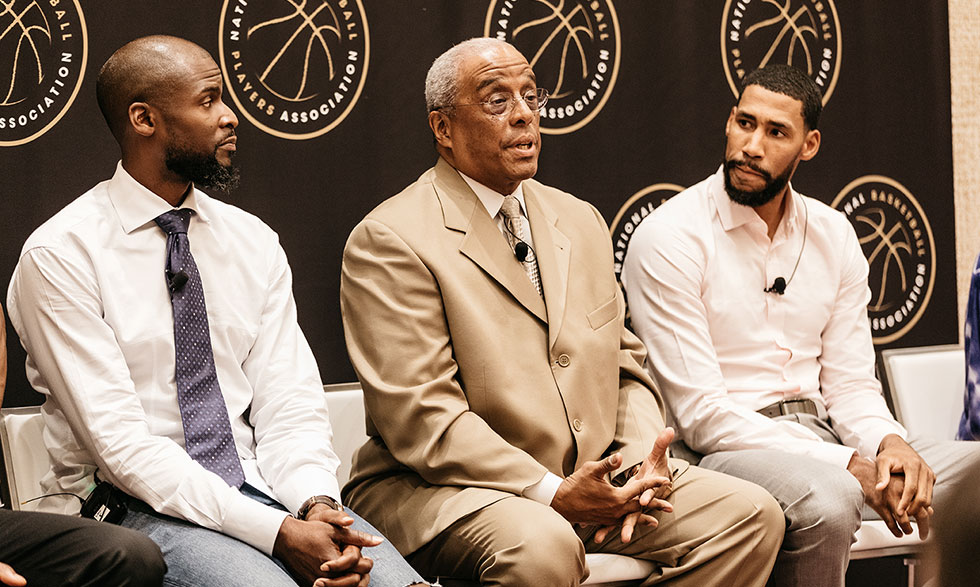
Last updated on July 9th, 2024 at 10:38 am
William Parham, Ph.D., was recently named the National Basketball Players Association’s (NBPA) first director of mental health and wellness. He is leading an effort to provide players more access to mental health professionals and self-management tools. He shared his vision with NIH MedlinePlus magazine.
What is the goal of this new initiative?
My goal is to change the narrative. There is a misguided belief among a lot of people that if you start talking about a person’s personal challenges, it will open up “Pandora’s box” and compromise performance. The opposite is true. Addressing issues can improve performance. You can reach untapped potential.
How do you hope to accomplish this?
We will provide a directory of mental health practitioners in each city where there is an NBA team that can help players seeking mental health assistance.
We are also developing a mental health literacy campaign. This will encourage athletes to better understand how to manage their mental health. Part of this will be a series of podcasts that share real stories of athletes who have successfully managed their mental health and wellness. We want to put positive modeling in front of players.
Why do men have a tough time talking about mental health challenges?
The experiences of stigma, shame, guilt, embarrassment, and—at the extreme—self-blame are very real and common emotional reactions that can hinder men in coming forward with mental health challenges.
At an early age, many of us, including athletes, learn that sharing deeply personal and revealing information carries a price. When you add the dimension of gender, men haven’t been given permission to be vulnerable.
For NBA players there is the added dimension of celebrity, which can make it more difficult to share what’s on their minds. You also have to factor in cultural and racial differences. All these factors collectively incentivize men to “stay strong,” “keep it tight,” and “man up.” And they do. As a result, many stay silent about the real issues and struggles they contend with every day.
What message do you want to send to boys and men about their mental health?
I would say that mental health and wellness is a key part of the human condition. It is also a critical part of a person’s fundamental identity. And therefore, it should be celebrated and embraced, not avoided.
Everyone in the world has baggage. The only two questions are: How many pieces of luggage are you carrying? And what is packed inside?
What role can professional athletes play in advancing us forward?
Professional athletes are role models. When athletes talk about real issues and show that they can be successful, that’s huge emotional medicine that will help kids and fans of all ages.
